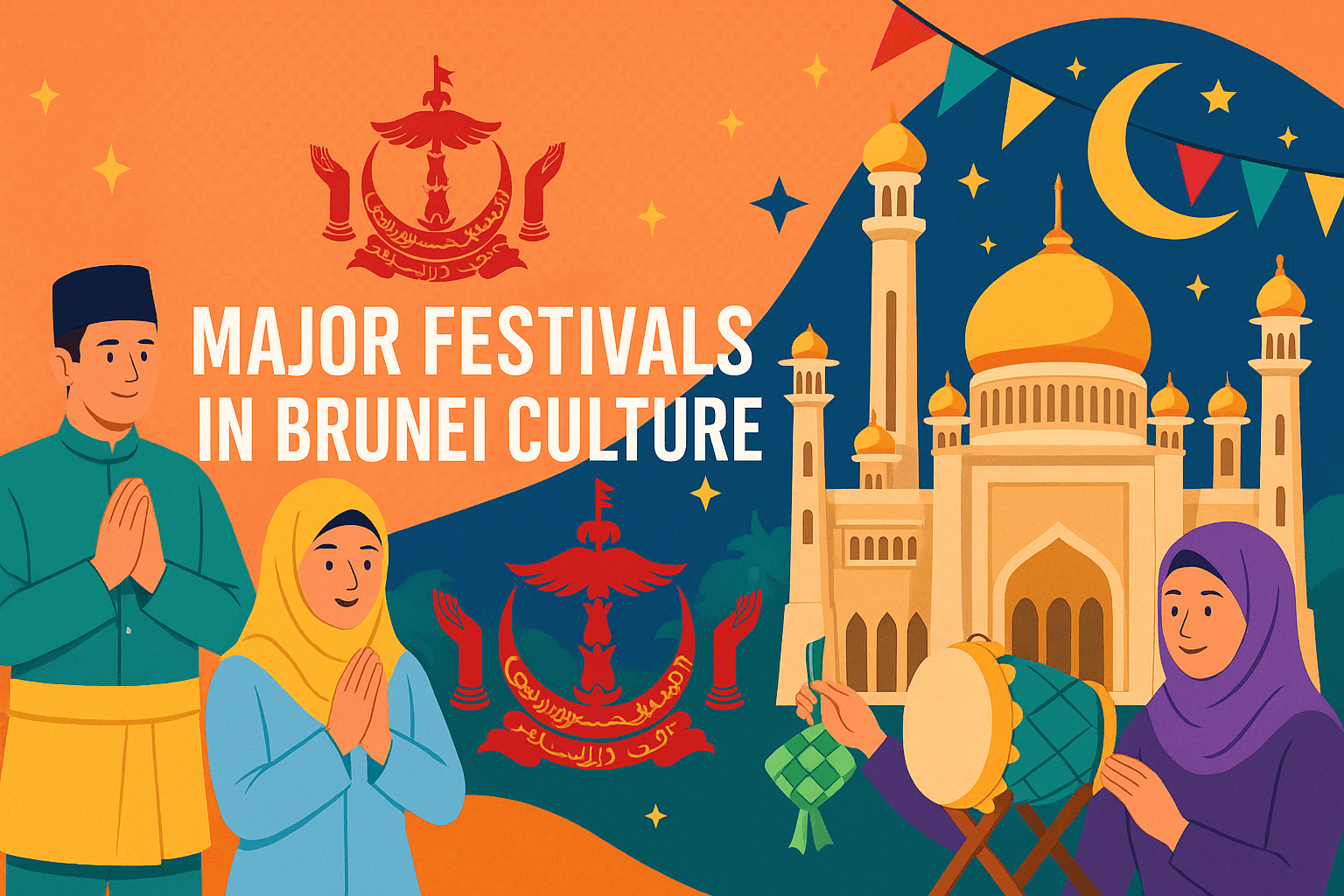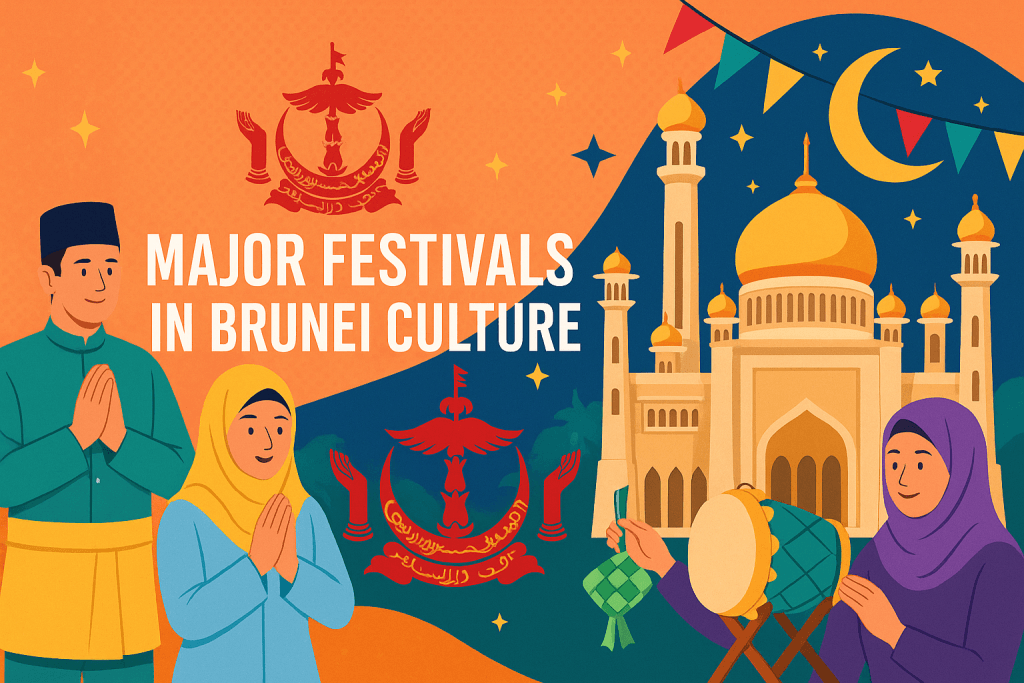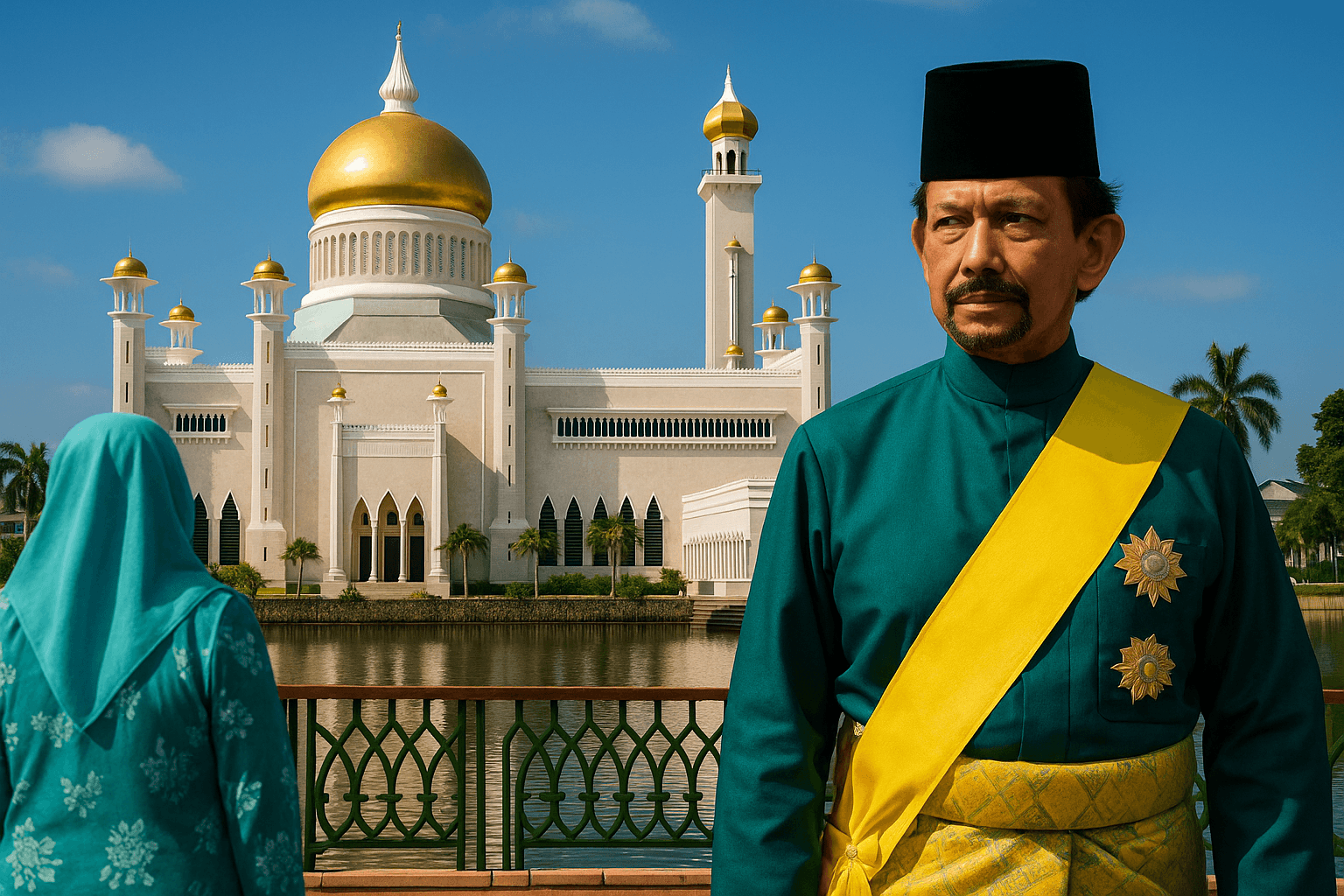Brunei Darussalam, a small yet culturally rich nation on the island of Borneo, is a country where religion, tradition, and modernity coexist in harmony. One of the most distinctive features of this nation is its vibrant festivals, celebrated with a strong sense of community, faith, and cultural pride. Understanding the Major Festivals in Brunei Culture offers not only a window into the country’s traditions but also highlights how its people maintain their identity through celebrations rooted in Islamic principles and Malay heritage.
Festivals in Brunei are not just events of joy but are deeply embedded in the way of life. They reflect values of family unity, community cooperation, spirituality, and respect for tradition. These occasions are marked by elaborate religious rituals, cultural performances, and expressions of hospitality that demonstrate the warm and inclusive nature of Bruneian society.
This article provides a comprehensive exploration of the Major Festivals in Brunei Culture, focusing on their significance, rituals, and impact on the cultural identity of the nation. It also delves into how these festivals align with the philosophy of the Malay Islamic Monarchy, which serves as the backbone of Brunei’s cultural and political framework.

The Role of Festivals in Bruneian Identity
Before diving into the specifics of the Major Festivals in Brunei Culture, it is important to understand their role in shaping Bruneian identity. These celebrations are not only tied to religion but also to Brunei’s sense of national unity. The festivals connect generations, reinforce religious devotion, and showcase the unique Malay traditions that define the nation.
Festivals are times when Bruneians gather in mosques, community halls, or homes to perform prayers, share meals, and host cultural performances. They are also opportunities to express the Islamic value of giving, which strengthens social bonds and helps the underprivileged. Through these occasions, younger generations learn the values of respect, generosity, and hospitality, while older generations pass on their wisdom and traditions.
Hari Raya Aidilfitri
Religious Significance
Hari Raya Aidilfitri, known widely as Eid al Fitr, is one of the most important Major Festivals in Brunei Culture. It marks the end of the holy month of Ramadan, a month of fasting, prayer, and self reflection. The festival celebrates spiritual renewal and the triumph of self discipline.
Traditions and Rituals
The festival begins with special morning prayers at mosques, where men, women, and children dress in their finest traditional attire. Families then visit cemeteries to pray for their ancestors, followed by open house gatherings where food is shared with relatives, friends, and neighbors. Generosity is expressed through giving green packets, known locally as “duit raya,” to children and younger family members.
Cultural Impact
Hari Raya Aidilfitri is a time of immense joy and community bonding. The emphasis on forgiveness and renewal strengthens family ties, while the open house tradition fosters inclusivity across communities. This festival perfectly embodies the spirit of the Major Festivals in Brunei Culture, blending religious devotion with cultural hospitality.
Hari Raya Aidiladha
Spiritual Importance
Hari Raya Aidiladha, also known as Eid al Adha or the Festival of Sacrifice, commemorates the willingness of Prophet Ibrahim to sacrifice his son in obedience to God. It is another cornerstone of the Major Festivals in Brunei Culture.
Observances
The central ritual involves the sacrifice of livestock such as cattle or goats. The meat is distributed among family, friends, and the less fortunate, symbolizing generosity and equality. Community prayers are held at mosques, and the day is filled with religious sermons and acts of charity.
Cultural Role
This festival emphasizes Brunei’s strong Islamic identity and its commitment to caring for the community. By sharing meat with the poor, Bruneians reinforce social responsibility, a value deeply tied to the cultural framework of the nation.
The Sultan’s Birthday Celebration
National Importance
Unlike the Islamic festivals, the Sultan’s birthday is a uniquely national celebration and one of the Major Festivals in Brunei Culture. It is not only a tribute to the monarch but also a celebration of national pride and unity.
Events and Rituals
The celebration involves parades, cultural performances, and public ceremonies. Citizens gather to witness processions, while government officials and community leaders participate in official programs. The event reflects loyalty to the Sultan and showcases Brunei’s unity under the Malay Islamic Monarchy system.
Cultural Influence
The Sultan’s birthday reinforces the central role of monarchy in Brunei’s identity. It unites the nation in expressing gratitude for peace, stability, and prosperity under the Sultan’s reign. This makes it a festival that goes beyond religious devotion to symbolize national solidarity.
Islamic New Year (Awal Muharram)
Religious Meaning
Awal Muharram, the Islamic New Year, marks the beginning of the Islamic lunar calendar. As one of the Major Festivals in Brunei Culture, it is a solemn occasion emphasizing reflection, repentance, and renewal of faith.
Traditions
Bruneians attend special prayers and sermons at mosques. Religious leaders deliver lectures on morality, unity, and the importance of adhering to Islamic principles. Unlike the more joyous celebrations of Eid, this festival carries a tone of contemplation.
Social Value
The festival underscores the moral and spiritual foundation of Bruneian life. It serves as a reminder of the importance of living in accordance with Islamic teachings, which form the basis of national culture.
Maulidur Rasul (Birthday of Prophet Muhammad)
Spiritual Context
Maulidur Rasul, celebrating the birth of Prophet Muhammad, is another of the Major Festivals in Brunei Culture. It emphasizes devotion to the Prophet and recognition of his teachings as a guide for life.
Activities
Processions, religious lectures, and Qur’an recitations mark the occasion. The streets often fill with participants carrying banners and chanting praises of the Prophet. Mosques hold special sermons to inspire believers to follow the Prophet’s example.
Cultural Relevance
This festival not only highlights devotion to Islam but also strengthens Brunei’s collective identity as an Islamic nation. It is a public demonstration of faith and unity that resonates across generations.
Isra and Mi’raj
Religious Foundation
Isra and Mi’raj, the commemoration of Prophet Muhammad’s night journey and ascension to heaven, is a spiritually profound festival within the Major Festivals in Brunei Culture.
Rituals
Special prayers and religious lectures are organized, focusing on the importance of prayer in Islam. Sermons encourage Bruneians to strengthen their connection with God through devotion and humility.
Cultural Reflection
This festival emphasizes the deep spiritual dimension of Bruneian culture. By focusing on prayer, it reminds the people of their commitment to uphold religious values in daily life.
National Day
Historical Context
Brunei’s National Day, celebrated on February 23, marks the nation’s full independence from British protection in 1984. While it is not a religious event, it is one of the Major Festivals in Brunei Culture due to its significance in shaping national identity.
Celebrations
Parades, cultural exhibitions, and patriotic performances dominate the day. Citizens express pride in their nation, and schools, government institutions, and communities participate in large scale programs.
Cultural Significance
National Day reinforces unity and independence, reminding citizens of the importance of sovereignty and self determination. It plays a crucial role in maintaining Bruneian patriotism.
Integration of Festivals into Brunei’s Cultural Framework
The Major Festivals in Brunei Culture are deeply tied to the Malay Islamic Monarchy philosophy. This philosophy emphasizes Malay traditions, Islamic principles, and loyalty to the monarchy. Festivals serve as living embodiments of this philosophy by:
Preserving Malay cultural practices such as traditional attire and hospitality.
Reinforcing Islamic teachings through prayers, sermons, and charitable acts.
Strengthening loyalty to the Sultan and national identity.
Through these dimensions, festivals maintain harmony between faith, tradition, and governance.
The Global Perspective
The Major Festivals in Brunei Culture also resonate beyond national borders. Tourists and international visitors experience the country’s hospitality and gain insights into its unique blend of tradition and faith. These celebrations position Brunei as a nation that treasures its heritage while opening its doors to the world.
Conclusion
The Major Festivals in Brunei Culture are more than annual events. They are expressions of faith, unity, tradition, and national pride. From Hari Raya Aidilfitri and Aidiladha to the Sultan’s birthday and National Day, each festival plays a vital role in maintaining Brunei’s cultural identity. They not only connect citizens to their spiritual roots but also strengthen national unity under the Malay Islamic Monarchy.
By celebrating these festivals, Bruneians reaffirm their commitment to faith, family, and community, ensuring that their cultural legacy continues to thrive for generations.


